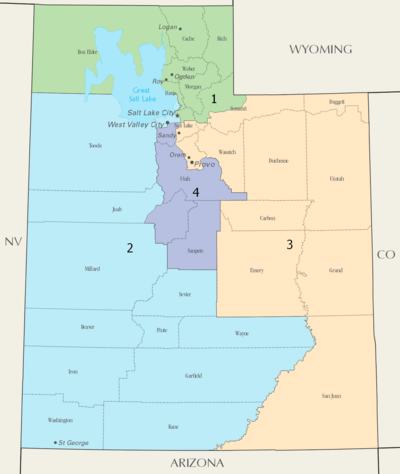Utah Judge Orders Redraw of Congressional Map, Potentially Shifting 4th District Dynamics

SALT LAKE CITY – A Utah district court judge has mandated that the state legislature redraw its congressional maps by September 24, 2025, ruling that the current boundaries, established in 2021, unconstitutionally diluted voter power through partisan gerrymandering. This decision by Third District Court Judge Dianna Gibson reinstates Proposition 4, a 2018 voter-approved initiative aimed at establishing an independent redistricting commission and preventing such practices.
The ruling is a significant development for Utah's political landscape, particularly impacting the 4th congressional district, which currently encompasses parts of Salt Lake County along with more rural areas like Cedar City and St. George. The current map, drawn by the Republican-controlled legislature, split Salt Lake County—a Democratic stronghold—among all four districts, making all four reliably Republican.
Prior to the 2021 map, the 4th District had been competitive, even electing a Democrat in 2018. The new court order suggests a return to maps that could consolidate Salt Lake County's population, potentially creating a more competitive or even Democratic-leaning district. Political commentator Matthew Chapman noted the implications for future campaigns, stating, > "I mean, the odds are that that fourth district's member would still come from somewhere like Cedar City or St. George, but at least there'd be enough of a rural population that they'd have to tour the state a bit to win a GOP primary." This highlights the shift in campaigning strategy required under a more balanced district.
The decision arrives amidst a national debate over redistricting, with both Republican and Democratic parties seeking to solidify their positions ahead of the 2026 midterm elections. While Republican officials in Utah have expressed disappointment and are considering appeals to the Utah Supreme Court, the ruling has been lauded by voting rights groups and state Democrats as a victory for fair representation. The League of Women Voters of Utah, Mormon Women for Ethical Government, and the Campaign Legal Center were among the plaintiffs in the lawsuit.
Lawmakers now face a tight deadline to produce a new map that adheres to Proposition 4's anti-gerrymandering standards. If the legislature fails to comply or if the new map is deemed unlawful by the plaintiffs, the court may intervene to order a remedial map. This legal battle could significantly alter Utah's congressional representation and contribute to the national balance of power in the U.S. House.